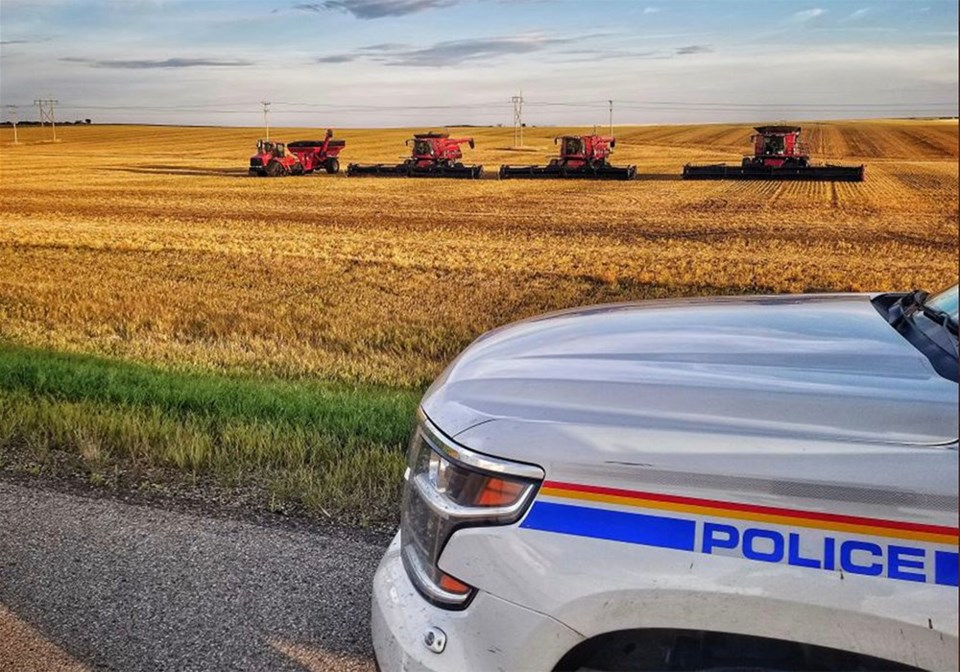Sixty new police positions were announced, as well as 11 new civilian positions.
The government promised to increase “visibility of law enforcement” across rural Saskatchewan and create a new Provincial Protections Services unit with more than 325 officers.
“This will bring together, under one command, conservation officers, Highway Patrol officers, Provincial Capital Commission community safety officers, Safer Communities and Neighbourhoods (SCAN) officers and deputy sheriffs working in the provincial court system,” the government said in the speech, which was read Oct. 27 by lieutenant governor Russ Mirasty.
The government says crime in rural areas has been on the rise for the past five years. In 2019, rural Saskatchewan had the highest crime rate in the country.
Christine Tell, the provincial corrections, policing and public safety minister, said the new police positions will be associated with units that will be moved throughout the province.
When asked by reporters if these new positions will be enough to curb crime in rural Saskatchewan, Tell said having new officers in the units will shift everything else as well.
“It’s not just those units,” she said. “The protective services branch, which is enhanced, and conservation officers’ duties, enhancing highway patrol officer’s duties, and looking at the sheriffs and transitioning the sheriffs to provide court security and prisoner transport — that unto itself will free up in a significant way, the RCMP to do their legislative mandate.”
Premier Scott Moe said addictions are partly to blame for crime.
“We understand that much of the crime that we see is addictions fuelled crime,” Moe told reporters.
“And so we want to ensure that Saskatchewan people that are struggling with addictions, that we’re providing them a pathway to a better opportunity.”
Moe said the government will expand its rehabilitation programs for addictions over the next three years, much like the one seen in Estevan, which opened last year.
The throne speech also addressed amendments made to the province’s Trespass to Property Act, which will come into effect Jan. 1, 2022. Passed in 2019, the amendments will shift responsibility from rural landowners to the people who want to access their property.
Moe said there were “some challenges” in enacting the amendments, which is why it took so long.
“I’ve talked to many folks about some of those challenges and with respect to some of the unintended consequences when you introduce a piece of legislation and pass a piece of legislation like the Trespass Act, for example,” Moe said.
“We’re just trying to work through and to ensure that we have the least unintended consequences as we potentially can.”
In its throne speech, the government said further changes will be made to the Trespass Act this session to add penalties for repeat offenders and to make it easier for landowners to seek damages against a trespasser.
Ray Orb, president of the Saskatchewan Association of Rural Municipalities, said he was pleased about the announcement of more police.
“That’s something we really need in rural Saskatchewan,” Orb said. “We’ve been supporting the RCMP and asking the province for more police, more visibility, to lower the amount of rural crime.”
However, in terms of the Trespass to Property Act, Orb said it’s coming too slow. He said SARM had hoped it would be enacted for the big game hunting season, which has already started.
Orb also said he was disappointed that there wasn’t mention of producers who sequester carbon.
“I would like to have heard that the province is coming forward with a plan,” Orb said.
“We’ve been pushing the province really hard on this, as far as creating a scheme for farmers to be able to realize that they have carbon sequestration, either through offsets, carbon credits, some kind of a plan. We haven’t seen that yet, but we’re going to continue to push the province on that.”

